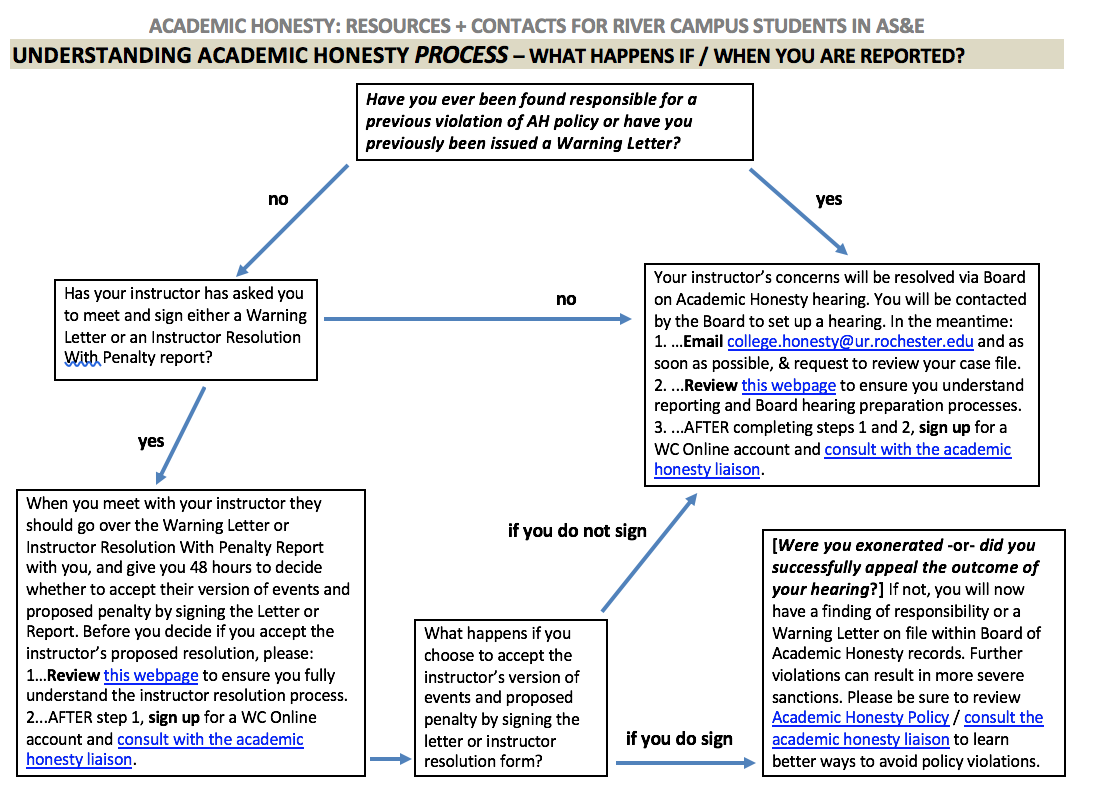Helping Your Student Succeed
Encourage your student to learn the academic honesty rules set both by the Academic Honesty Policy and by each course instructor. The policy sets general rules that apply to all courses, while instructors set additional rules that are specific to courses and assignment. Instructor rules are often different from course to course, particularly in the areas of collaboration, citation, and group work, so it is important that students read their course materials carefully.
Help your student connect to University resources if they begin to struggle. You can learn more about the academic and emotional supports at the University on the student resources page.
Familiarize yourself with the academic honesty rules as well, so that when your student asks you for help with academic work, you can be sure that you are only giving help that is permitted.
Avoid turning in work on behalf of your student. Since all work submitted to an instructor is subject to the academic honesty policy, it is important that your student be the only one making decisions about when work is ready to be turned in.
Do not ask your student for their NetID and password to log into University password-protected accounts. This violates both the academic honesty and student conduct codes.
Please note: As of fall 2022, all students who sign an instructor resolution with penalty, a warning letter, or a chair's resolution, or whom the Board on Academic Honesty finds responsible after a Board hearing, will be assessed a $50 administrative fee.
Suspected Academic Honesty Violation
If your student is suspected of doing something that violates the academic honesty policy, it is important to:
- Understand the academic honesty process
- Identify the factors that led to the suspected policy violation
- Help your student connect to appropriate University resources
You can read about the academic honesty process on suspected violations page. Keep in mind that the undergraduate and graduate processes are different. For an overview of how the Academic Honesty process works, you can review the following chart and/or this PDF document.

If you have more questions about the process, you can contact the academic honesty liaison.
To help identify the factors that led to the suspected policy violation, ask your student about what happened. Academic honesty violations are often a symptom of something else that has gone wrong, such as time management issues, emotional distress, ineffective studying habits, or a lack of understanding of academic rules and policies.
Connecting students with the right resources can help address the cause of what went wrong and keep it from happening again. See a list of academic resources on our student resource page.
Finally, academic honesty cases can be very distressing to students and their families. Check in with your student to see how they are coping, and contact University support services as needed. See a list of emotional support resources on our student resource page.
Parents of International Students
If your student is studying at the University on a student visa and is suspected of doing something that violates the academic honesty policy, your student should contact the International Services Office (ISO) to discuss how academic honesty penalties might affect their US immigration permissions in either of the following scenarios.
Scenario One
If your undergraduate student has a second or third suspected policy violation or your graduate student has any suspected violation, the student may be separated (suspended or expelled) from the University. Students who are separated from the University are no longer eligible for University of Rochester immigration sponsorship as they will not maintain enrollment at the University.
It is important to discuss possible outcomes with ISO in advance, since options are more limited once a separation decision is final.
Scenario Two
An academic honesty penalty, such as a course failure or separation from the University, can cause a student not to graduate as scheduled. If your student has applied for F-1 work authorization (or Optional Practical Training, known as OPT) with an academic honesty penalty that causes your student not to graduate as scheduled, then OPT eligibility may be impacted and can result in delays or denial of the pending application.
ISO advisors will help your student to understand immigration options based on an academic honesty penalty, remaining degree requirements, and any other academic or employment plans.
Confidentiality
University employees can typically answer general questions about process, but they cannot answer specific questions about your student without the student’s consent as the academic honesty policy mandates confidentiality that can only be waived by the student.
Further, the unrelated federal Family Educational Rights and Privacy Act (FERPA) also prohibits University employees from disclosing the education records of students.
Contact
You can contact the academic honesty liaison for questions about academic honesty. As a reminder, the honesty liaison provides advice to students about:
- how the academic honesty process works / what to expect
- what the policy says about their responsibility as a student
- what the policy says about their instructors’ responsibilities
- how to draft case file, hearing, and / or appeals statements
- how to educate & protect themselves from future accusations
- should they sign / accept an instructor resolution with penalty form or a warning letter if their instructor has offered one?
The academic honesty liaison can also answer your questions about the academic honesty policy and process, as well as questions about the academic honesty training that students receive.
The liaison is separate from the Board on Academic Honesty, which adjudicates cases.
